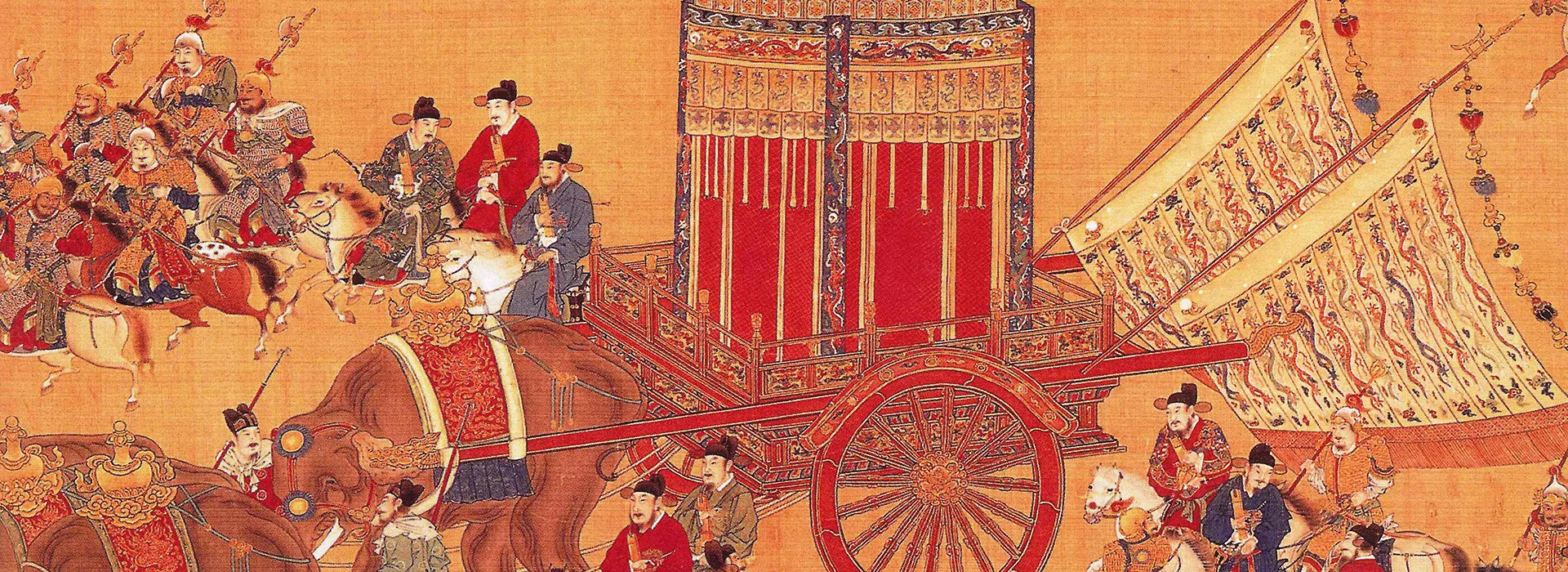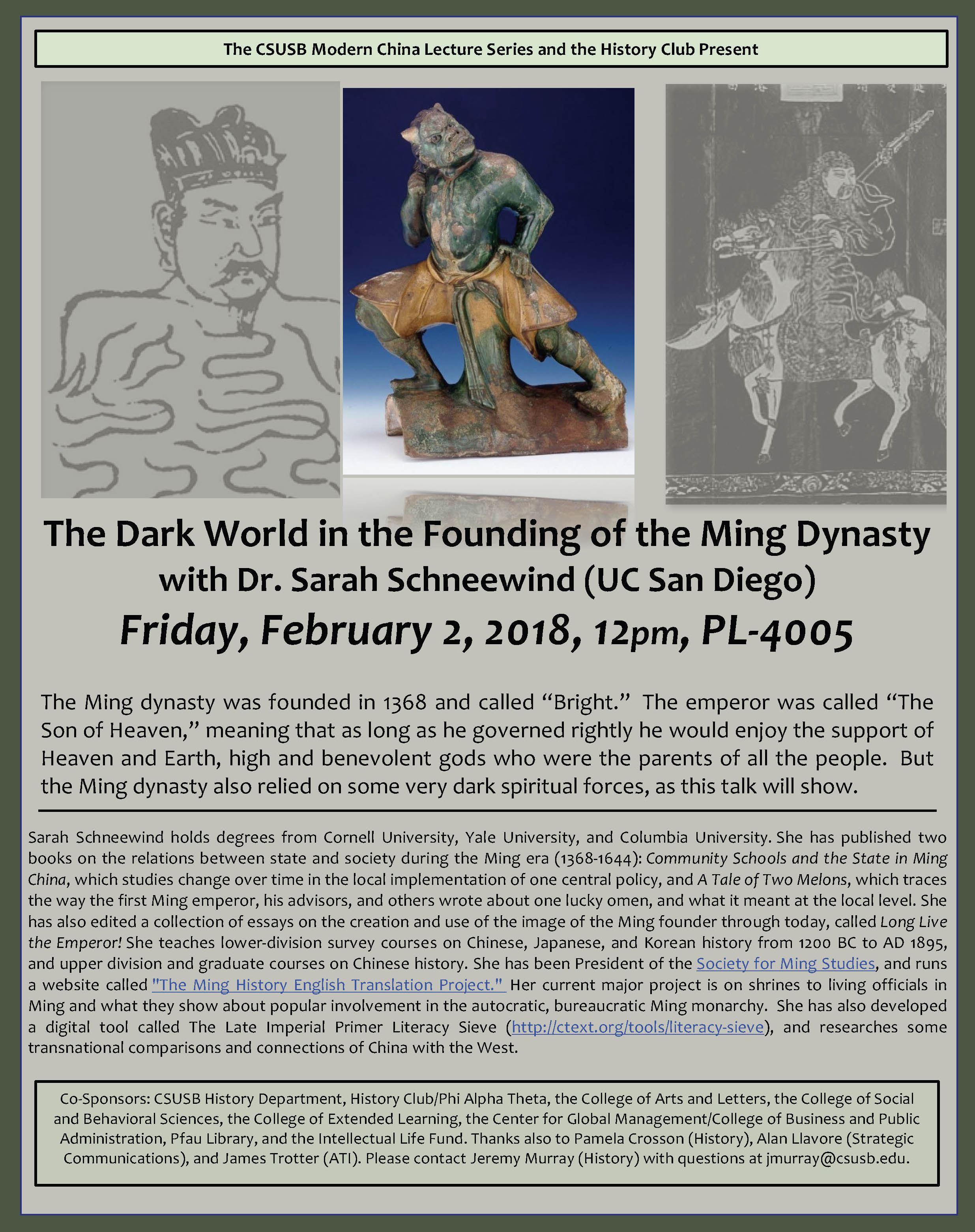Joe Gutierrez Office of Strategic Communication (909) 537-5007 joeg@csusb.edu

When the Ming Dynasty of China was founded in 1368, it was called “Bright,” and the emperor was called “The Son of Heaven,” a nod to the idea that he governed rightly and with the support of Heaven and Earth, high and benevolent gods who were the parents of all the people.
But the Ming Dynasty also relied on some dark spiritual forces, and that is what guest speaker Sarah Schneewind will discuss when she presents “The Dark World in the Founding of the Ming Dynasty” on Friday, Feb. 2.
Her talk is part of Cal State San Bernardino’s Modern China Lecture Series, and will take place at noon in the John M. Pfau Library, room PL-4005. The lecture is free and open to the public; parking at the university is $6.
Schneewind is an associate professor of history at UC San Diego and has published two books on the relations between state and society during the Ming Dynasty (1368-1644): “Community Schools and the State in Ming China,” which studies change over time in the local implementation of one central policy; and “A Tale of Two Melons,” which traces the way the first Ming emperor, his advisers and others wrote about one lucky omen, and what it meant at the local level.
She has also edited a collection of essays on the creation and use of the image of the Ming founder through today, called “Long Live the Emperor!”
Schneewind teaches lower-division survey courses on Chinese, Japanese and Korean history from 1200 B.C. to A.D. 1895, and upper-division and graduate courses on Chinese history. She has been president of the Society for Ming Studies, and runs a website called “The Ming History English Translation Project.” Her current major project is on shrines to living officials in Ming and what they show about popular involvement in the autocratic, bureaucratic Ming monarchy.
She has also developed a digital tool called The Late Imperial Primer Literacy Sieve, and researches some transnational comparisons and connections of China with the West.
The Modern China Lecture Series was initiated to promote awareness of important issues related to China for those on the CSUSB campus and in the community. In the series of more than 40 lectures, workshops, film screenings and roundtable forums since January 2014, China scholars from UC San Diego, UC Riverside, the Claremont Colleges, UCLA, USC, UC Irvine and other institutions have visited the CSUSB campus to share their expertise and opinions.
Speakers in the series have included specialists in history, economics, political science, philosophy, finance, security studies, literature, anthropology and other fields. Look for upcoming events from renowned scholars including Morris Rossabi (Columbia) on Feb. 16, and Weijing Lu (UCSD) in May.
The Modern China Lecture Series is sponsored by the CSUSB history department, History Club/Phi Alpha Theta, the College of Arts and Letters, the College of Social and Behavioral Sciences, the College of Extended Learning, the Center for Global Management/Jack H. Brown College of Business and Public Administration, John M. Pfau Library, Margaret Hill and the World Affairs Council of Inland Southern California, and the Intellectual Life Fund. Special thanks also to Pamela Crosson (history), Alan Llavore (Strategic Communication) and James Trotter (ATI).
For more information on the Feb. 2 event or the Modern China Lecture Series, contact Jeremy Murray, associate professor of history, at jmurray@csusb.edu.
For more information on Cal State San Bernardino, contact the university’s Office of Strategic Communication at (909) 537-5007 and visit inside.csusb.edu.
